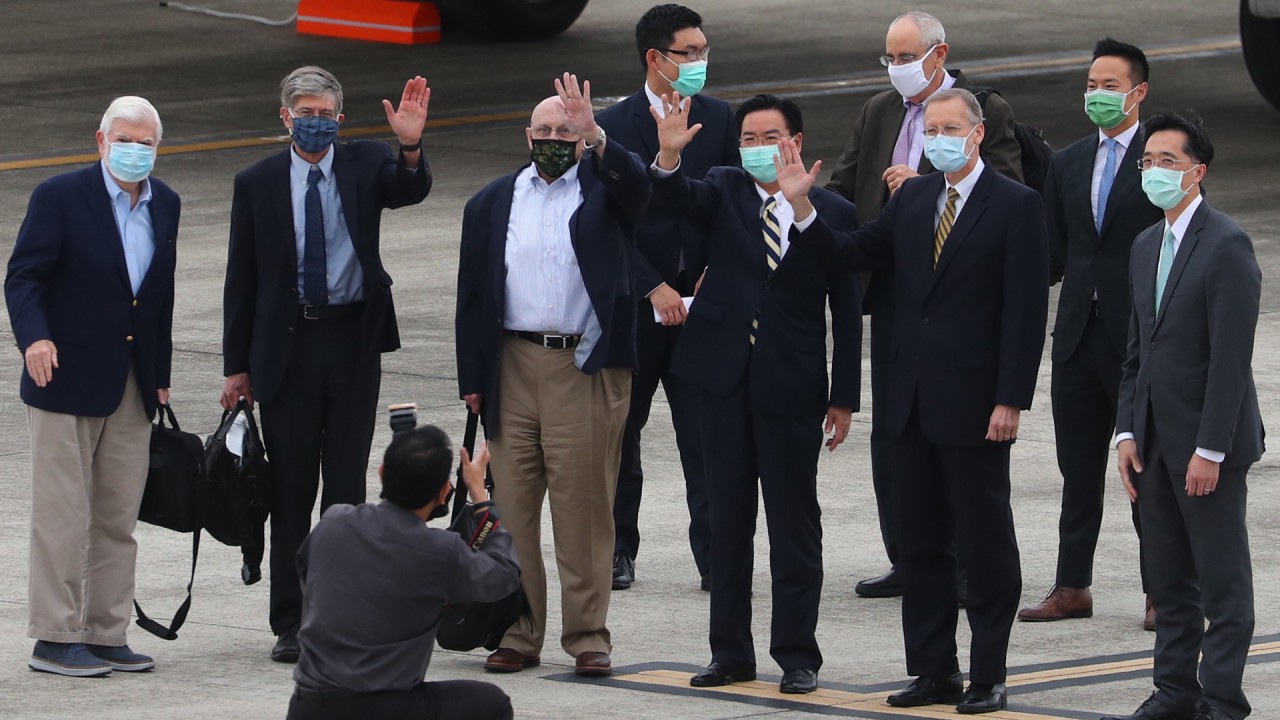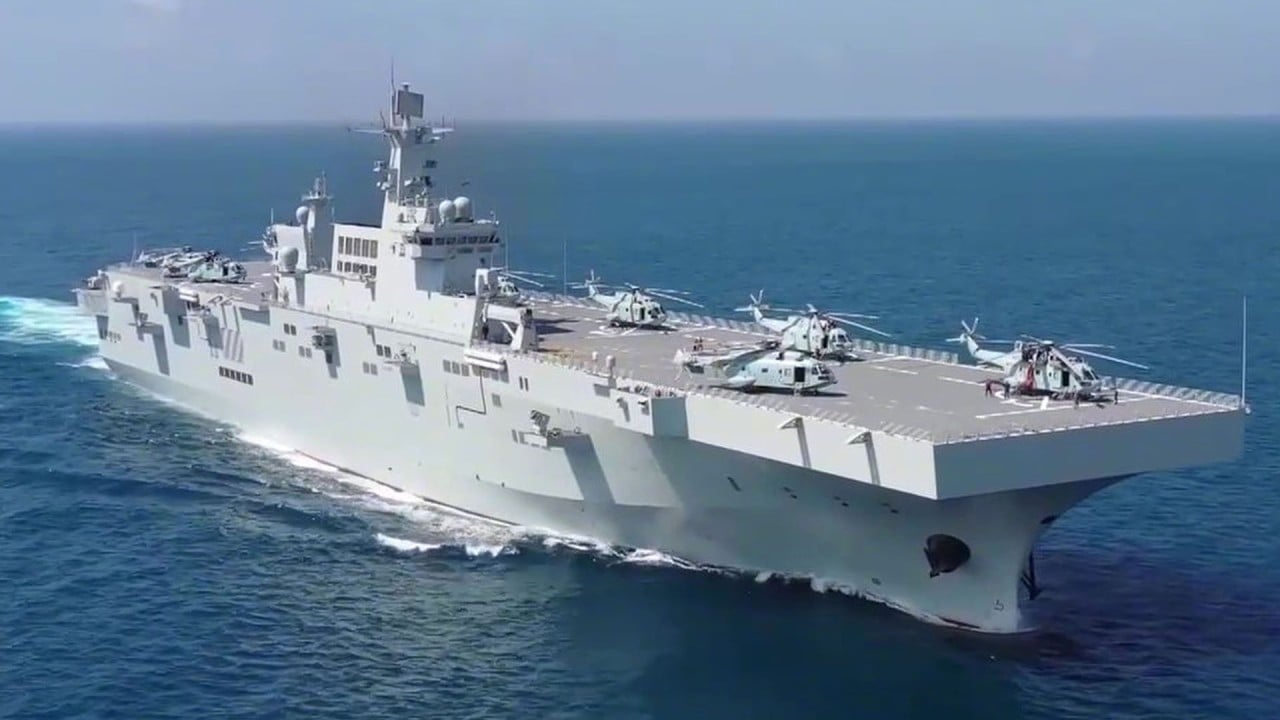
US has ramped up reconnaissance in Chinese-claimed waters, says Beijing
- China says US reconnaissance is up 20 per cent for warships and 40 per cent for planes in areas claimed by Beijing, causing warships’ close encounter
- It comes as President Joe Biden tells Congress the US is ‘in competition with China and other countries to win the 21st century’
On the day that Biden targeted Beijing in his first speech to a joint session of Congress, Chinese defence ministry spokesman Wu Qian said operations had increased by more than 20 per cent for US warships and 40 per cent for planes in and around waters claimed by China, compared with the same period last year under Donald Trump’s administration.
Wu said at a monthly press conference that the increase was “destabilising” and had led to a close encounter in early April when the guided-missile destroyer USS Mustin had to be warned away as it conducted a “close-up reconnaissance” of the Chinese aircraft carrier Liaoning and its battle group.
The US Navy released a provocative photograph after the incident, showing senior American navy officers gazing at a Chinese warship while shadowing the Liaoning carrier group at a close distance.
Wu said the encounter had “seriously interfered with the Chinese side’s training activities and severely threatened the navigation safety and safety of personnel on both sides”, adding that the Chinese ships “warned off” the US ships and had lodged complaints with Washington.
“He and others – autocrats – think that democracy can’t compete in the 21st century with autocracies, because it takes too long to get consensus,” he said.
“We’re in competition with China and other countries to win the 21st century. We’re at a great inflection point in history; we have to do more than just build back … we have to build back better.”
Chinese foreign ministry spokesman Wang Wenbin rejected the notion that China posed a threat to the United States, saying China was not intent on hegemony.
He blamed the US for imposing restrictions on other nations’ tech companies to maintain its monopoly in the sector, saying that Toshiba and Toyota from Japan, as well as Chinese firms, had been restricted in the past year.
South China Sea: the dispute that could start a military conflict
Since Biden took office in January, the US has conducted at least four operations near the South China Sea and three others near the Taiwan Strait.
The US has conducted regular “freedom of navigation” operations in the South China Sea since 2015 and has increased their frequency.
Last year, it conducted seven operations to challenge “excessive maritime claims” by China in the East China and South China seas, according to a US defence department report to Congress.
“[We] have made full preparation in addressing the separatist activities of Taiwan independence and the interference of external forces,” Wu said in response to a question about speculation that the recently commissioned first Type 075 amphibious assault ship could be deployed near Taiwan. China sees the island as a breakaway province that should be reunited with the mainland by force if necessary.
Wu suggested that operations by the Liaoning group near Taiwan and in the South China Sea would become “routine”.
Wu Xinbo, head of the Institute of International Studies at Fudan University, said rivalry between the superpowers could lead to confrontation, with Taiwan being among the biggest potential flashpoints.
“Biden has claimed that he wants to host a global democracy summit at the end of the year and may invite Taiwan. This would cross China’s red line.”
He added that China’s response would be more aggressive than in the third Taiwan Strait Crisis in 1995.
Wang Yiwei, an international relations professor at Renmin University, said that Biden’s China policies were still taking shape and subject to domestic pressure, but initially emphasised rivalry.
“Biden is influenced by multiple parties including Congress, think tanks and chambers of commerce in forming his China policy,” Wang said.
“He is still in the exploratory stage of how to deal with China. I think it will take several more months to come up with a relatively mature China policy, but then it will be very difficult to win the cooperation of different forces in the US.
“China and the US will cooperate in certain fields while competing in others. There will be rivalry, but not vicious rivalry of life and death. Strengthening crisis management, setting red lines and establishing some competition rules will be the main development of future Sino-US relations.”
Additional reporting by Rachel Zhang




